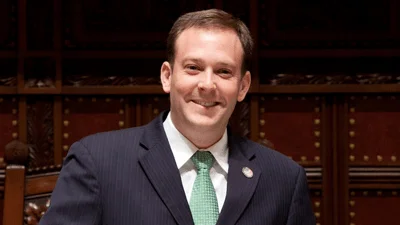Deputy Secretary of State Christopher Landau addressed the panel “Global Refugee Asylum System: What Went Wrong and How to Fix It” on September 25, 2025. In his remarks, Landau highlighted the significance of migration as a central issue for the 21st century, noting its historical roots in the aftermath of World War II and the creation of international mechanisms to support refugees.
Landau distinguished between immigration and asylum, emphasizing that while countries have their own systems for admitting immigrants for various reasons, asylum was intended as a limited exception for individuals facing imminent harm due to specific protected characteristics such as religion, race, or political opinion. He stated, “In our law, in order to qualify for refugee status or asylum status, you need to have a well-founded fear of persecution on the basis of certain enumerated statutory characteristics… Economic privation is not a basis for asylum.”
He expressed concern about current trends where large numbers of people claim asylum without meeting these criteria. According to Landau, “when these claims get adjudicated, 90-plus percent of people are found not to be eligible for asylum.” He argued that this overloads the system and can disadvantage genuine asylum seekers: “If you have hundreds of thousands of fake asylum seekers, what happens to the real asylum seekers? They get lost in the midst of a massive bureaucratic process.”
Landau called on international bodies like the United Nations to acknowledge abuses within existing systems and work toward reforms. He said, “It behooves those who really are concerned about the plight of the real asylum seekers in the world to have an international order that accepts the fact that we should discourage people from abusing this process.”
He outlined five principles he believes should guide future reforms:
1. Each nation has the right to control its borders.
2. There is no inherent right for individuals to choose their country of refuge.
3. Refugee status should be temporary rather than permanent.
4. Sovereign states must determine when conditions permit return.
5. Countries must accept expeditious return of their nationals whose claims are rejected.
Landau also cited recent legislative changes in Greece requiring rejected asylum seekers to leave within 14 days as an example being debated internationally.
He concluded by urging continued discussion among nations: “As the beginning of a serious international conversation…I think we have to recognize that the asylum system around the world has been subject to abuse if in fact we want to save the asylum system itself.”





